“Do something not only for yourself but also for others”: an interview with Mariusz Gasiewski, founder of GameCamp by Google, about the future of communities and the tech industry, and ways to maintain work-life balance.
Mariusz Gasiewski has been part of Google since 2007. He currently works with top mobile gaming clients in the CEE region and leads mobile gaming initiatives at Google for Startups Campus in Warsaw, supporting the growth of the mobile gaming and apps ecosystem in the Central and Eastern European (CEE) region.
Throughout his career, Mariusz has been instrumental in assisting some of Google’s largest clients in Central and Eastern Europe with the preparation and implementation of mobile measurement strategies. He is a well-known speaker at gaming and mobile conferences and is also the founder of GameCamp (www.gamecamp.io), one of the largest mobile gaming communities in Europe.
On September 14-16, he will be speaking at the LINQ Conference (www.linqconf.com) in Limassol. During the interview, we talked to him about leadership, technologies, and his perspective on the development of the Cyprus community.
Mariusz, we know two cool facts about you. First, you are the founder of one of the largest GameDev communities in Europe – GameCamp by Google. Second, you didn’t have a computer until the age of 20. Tell us about your journey. How did you go from point A to point B?
I was born in a very small village with, I think only 100 villagers, in the northern part of Poland. We had really limited access to information there. So, the first time I saw a computer was exactly when I started studying in Warsaw in the 2000’s. When I saw it, I wanted to be really good at this. I put a strong focus on it, reading forums, and manuals, and asking questions to people who knew much more than me. After 3 years I was one of the more advanced people in this topic at my university. You need to be persistent and patient once you want to achieve something.
An additional area that gave me a lot of life lessons was travelling. My first serious trip was a travel program in the US. It had a hard start as our trip turned out to be a scam so we got into serious problems (with very little money, no job, basic English in the country we didn’t know). We spent our last money on buying the car and pushed our limits to find a good job. Finally working together we were able to find a really good job at one of the biggest printing companies in the US. Again taking the risk is important both in private and business life. It was very hard: 12-hour work day, only 20 minutes for a break. In the following years I was working in many different places, ie: hotel, restaurant, butcher shop, moving company. I even worked at hanging scaffolds, renovating the famous Waldorf-Astoria building on the 42nd floor (the same building where Spiderman II was shot:). Those experiences, working with those places gave me a lot of learnings that I think are really valid in the business. Especially for people working in the gaming industry. You have to learn to deal with the unexpected, risk and go out of your comfort zone to grow, develop. No pain no gain…Once adversity strikes you can waste a lot of time asking yourself: “Why?” or “What would happen if..” or you can just adjust to new “normality”, get additional learnings, look for new solutions that even not being most ideal are moving you closer to specific goal.
In general, people don’t like changes. But if we look at the gaming and Internet industry we see this specific speed of change. Everything changes everyday and you have to live with it. It is both a disadvantage and a significant advantage over other fields. And only once you know how to cope with it, you can be successful.
After all those places I was able to find a job in the hosting company, which was much closer to what I am doing now. That place showed me the amazingness of a global business.. We were in Chicago, and the technical team was actually in Ukraine. And having a global view of a company where people work in different parts of the world helped me realize that if you are working in marketing, you should have at least a basic understanding of technology. Conversely, if you are a technical specialist, it’s worth understanding at least a little about product promotion methods. Real value in that industry is actually on the connection of both areas. If you look at all the different challenges and what the biggest problems are, for example: privacy, measurement of results, creative strategy, or some specific things like brand versus performance, all that stuff loses out if there is no connection between marketing and technology. And those companies that are able to push those skills across the teams they grow faster.
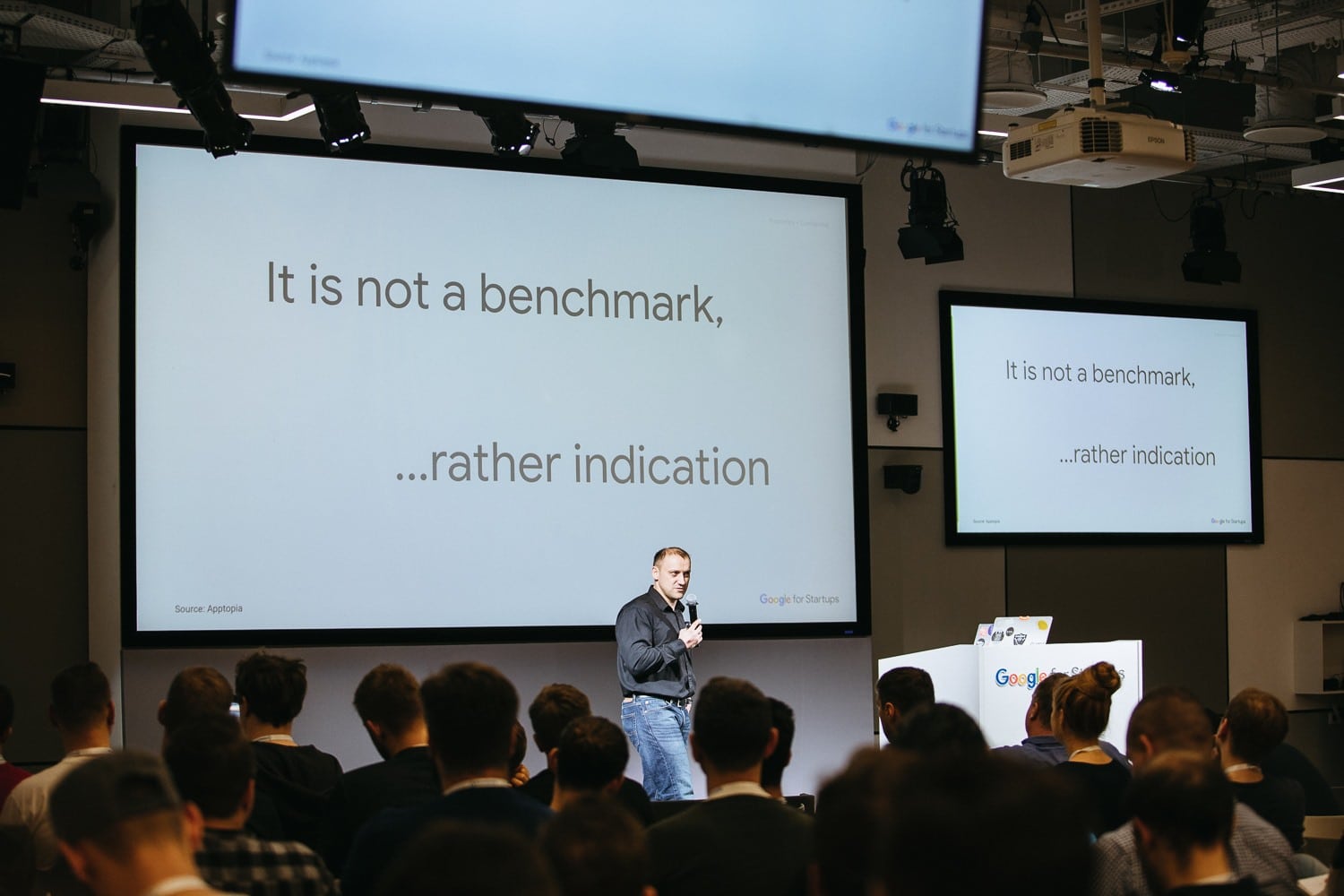
Maybe you can share some ways how the companies can put the technical guys to be more involved in marketing and vice versa?
I think it has a few components. The first one is how to really make people more open? It’s the hardest point, actually. If your team consists of closed-off individuals unwilling to develop and be open to new knowledge and other teams, it is unlikely that you will be able to establish cross-team collaboration. We have all encountered people who only want to follow their job instructions, complete their tasks, and not get involved in other processes. In such a case, you need to develop the soft skills of your team, work on communication within the group, and engage specialists who understand that any new skills and abilities help them personally advance in their careers.
The second component is the participation of team members in various events to expand their horizons. For example, a technical specialist attends a marketing conference, and vice versa, a marketer goes to a programming event. Yes, it may not be 100 per cent related to their job, but it helps them to grow and look at their own tasks from a different perspective. For instance, working with data. Yes, data is fundamental, but they will never show the emotional aspect of user behaviour. Or why other companies have chosen a specific promotional approach and how it impacts the product. For example, what I really like about the Cyprus community is the large number of events for professionals from different fields. Every week, there are events for GameDev specialists, marketers, company founders, and people simply interested in self-improvement. Google’s GameCamp also holds its meetings here. There are plenty of opportunities for cross-platform employee development.
And how to help employees engage in this?
It’s always balanced between time cost and effect. Let’s see two different people. The first one has a lot of time, so he can, for example, read at least one book outside of his territory every week. After two years such a person will have much bigger horizontal growth than just someone working only with his specific field. But let’s see a person who has less time. How to make him deal with it? Conferences, workshops, or even mentoring. You have limited free time, so instead of reading books on the topic that interests you, you turn to a professional who has already read them; it just took them 10 years to do so. This process can be compared to sports. You can go to the gym three times a week on your own and dedicate a lot of time to it. Alternatively, you can go once a week with a professional trainer who will more effectively manage your time and progress.
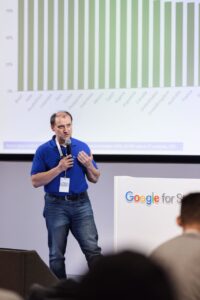
Since we touched upon the topic of mentors, can you tell us about the people who inspire you? What lessons have you learned from them?
I have many stories, but I want to share one of the most pivotal ones. When I was 10 years old, I was involved in a car accident. I could have died. However, by pure chance, a doctor who was heading on vacation happened to pass by. He stopped, provided first aid, and stopped the bleeding. I was taken to the hospital, where I found myself on the brink of death again. I was saved, but they had to consider amputating my arm. Once again, luck was on my side – that day, a doctor who had served in the army for many years and seen many similar injuries was on duty. He saved me, my arm, and helped me recover afterward. Five weeks after my discharge from the hospital, this doctor and his wife tragically died in a car accident. I attended their funeral, and it was like a presidential funeral because a vast number of people whose lives he had touched came to express their gratitude to this remarkable individual. He was my first inspiration.
Thanks to this story, I understood that you should do something not only for yourself but also for others. We all have people we are grateful to. And often, we do something to pay it forward. It’s a very simple idea, at first glance. Everything we do comes back to us. So, I want to break the cliché that you should focus on your career, your business growth, or networking. No, you should focus on developing relationships with people.
In the gaming industry, this is especially crucial due to the speed of changes. You never know what will happen in three years. Also, it’s very hard, stressful business, you work a lot and sometimes you don’t know what to expect. But if you work not from a selfish position, it will benefit you. Reciprocity is not only about your kindness but also about your business. The more you think about this deeper, the easier it becomes to cope with that. A very important part of that is just your own goals – grow your family, grow your career, grow the company you work with, but there is something behind it as well.
This idea sounds like straightforward advice for building a thriving community. We know that you often visit Cyprus. How do you envision the development of the local community?
I feel a very strong connection to Cyprus. My wife is half-Cypriot and we spend a lot of our time here. From a business perspective I think Cyprus has amazing potential to be a connection between, you know, East and West, South and North. Right now, it’s a place where you can generously share different perspectives within the industry and grow together.
There are several reasons for this. Firstly, Cyprus is a highly multicultural place where people from different nations live, sharing life experiences and professional knowledge. Secondly, it boasts a beautiful location that is strategically convenient, with all major business directions nearby. Thirdly, over the past few years, investors and business angels have been coming here, recognizing the potential both in Cyprus itself and in local companies. Moreover, the government understands the importance of collaborating with businesses, regulating processes, and supporting entrepreneurs, making Cyprus one of the popular destinations for employee relocation and opening new offices close to Europe. The authorities see how, for example, the growth of the GameDev industry can contribute to the overall development of the country. And, of course, the main reason is the people. Here, incredibly creative, open, and communicative professionals from different fields and countries have come together. This is a significant advantage for the ecosystem when people with different perspectives meet. But there is also a risk that over time, Cyprus may turn into a set of language bubbles, each living its own life and not interacting with other communities. To avoid this, I believe it’s important to unite cultures and nations. I’m really in favor of diversity. Company founders should hire people from different cultural backgrounds. People should communicate more, share diverse perspectives, cultures, and interact with each other.
Tell us more about GameCamp by Google. How and why was it created?
We are not an organization in the traditional sense. Our community exists within Google and Google for Startups. GameCamp by Google is a group of enthusiasts who just want to grow knowledge on the market. It’s all about connections. Actually, I think that all businesses are about connections between people and other projects. We are able to create good content, find good speakers, find good people who could share real stories, real content. And we do it. Majority of our content comes from from the industry; from companies who see the value in growing knowledge exchange.
The reason I created GameCamp by Google was I wanted to democratize this topic a little bit. Complexity of the gaming and apps business creates higher and higher barriers for the new entrance. So, if you are a big company, you have resources to hire the people with experience, you can send them to the events, give them a way to go to other countries, exchange reviews. Once you are a small team, you create a new game, you are actually confused about how to start. So, GameCamp by Google, of course, helps Google but also it helps to grow the ecosystem. Especially in regions where prejudices are still strong, and sharing with each other is frowned upon, companies compete with each other. Currently, I see more similarities with the West, but in the East, the ecosystem is still developing.
We gather experts around us who share their knowledge with each other to grow faster. We know each other, assist with projects and events, communicate extensively, and exchange experiences. Even newcomers in the industry attend our events. For instance, the story of the successful creation of a mobile gaming company can be very beneficial for those who are just starting their journey.
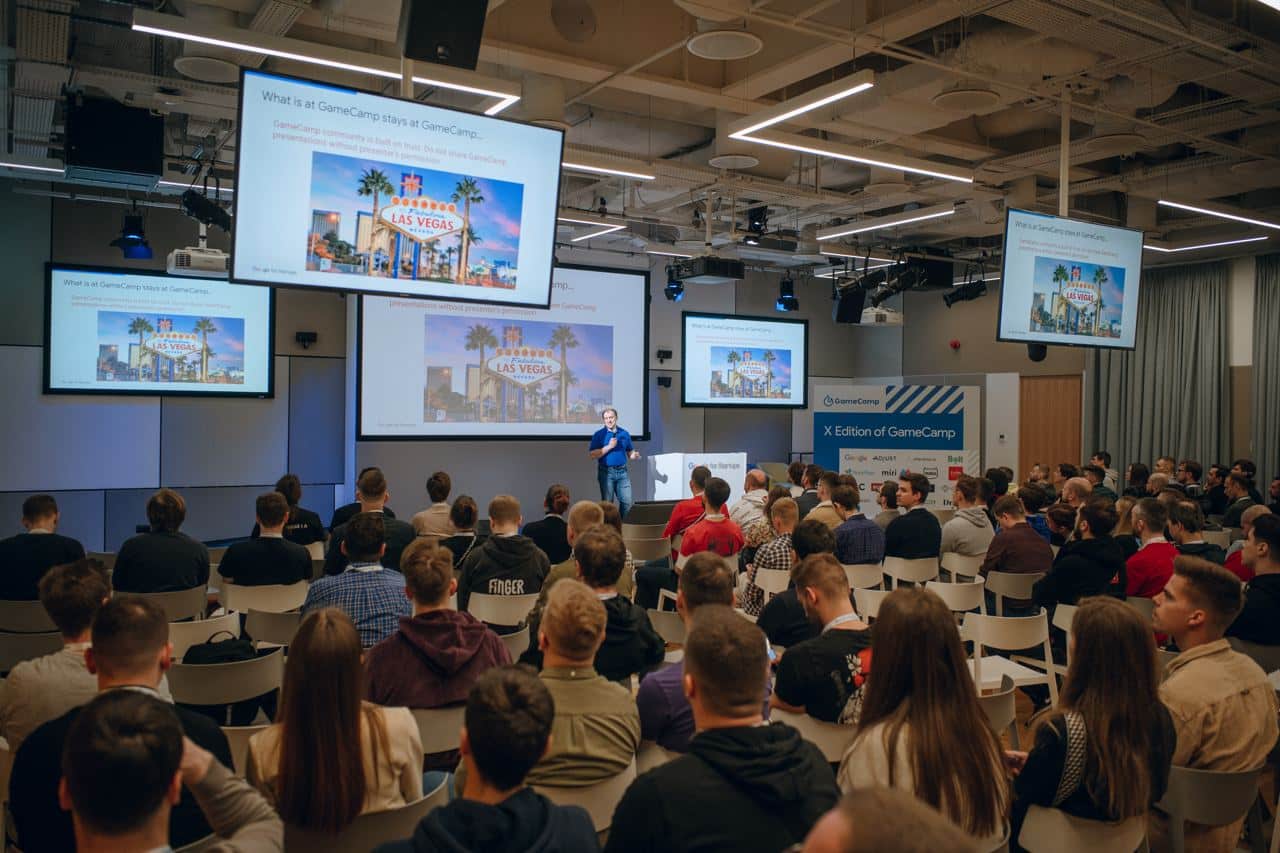
Mariusz Gasiewski, founder of GameCamp by Google
This year, GameCamp by Google will take place as part of LINQ Qonference. What is the specific idea behind this event, and how will it differ from your regular gatherings?
I’m pretty sure it will be an amazing event. On one hand, we aim to share knowledge and foster networking among the participants. Professional expertise will be around growth, data, monetization, creative, mobile gaming. On the other hand, as I mentioned before, Cyprus has the potential to become an international tech hub. Therefore, our goal is to attract even more multicultural specialists and companies to the island. This includes attracting investors from different parts of the world. We are attracting people from the USA, Western Europe, Israel, and so on, who are interested in forcing connections between their countries and Cyprus. I hope that this will further accelerate the growth of the island and the local community.
You have been working at Google since 2007. That’s a long time! What continues to motivate you?
I have been working here for many years but every 3-4 years I was changing direction a little bit close to the idea of performance market. So, in the past, I was working in different verticals. I was working with different types of companies, sometimes with different types of activities, sometimes more focused on startups, sometimes more focused on top companies. It could look quite similar. However, over the years it was changing a lot.
But the truth lies in a more philosophical reason. It’s all about passion. If you find an industry, a job that truly resonates with you, moving forward will be much easier. I genuinely love my job, love working with gaming and apps, and love working with people. Here, I combine all of this. I believe that everyone should find their own path to development. It’s not just about your career; it’s about your personal growth. Make sure you are truly doing what you love. Only then can you avoid stress, burnout, and continue doing what you do.
You love your job, but it’s still work that can be draining. How do you replenish your energy throughout the day?
I really like this physical activity. Actually I built a pretty good gym in my garage. So, I have a place where I can refresh myself at 7 am or 11 pm three times a week. I’m not the youngest, I’m not the freshers but I try to keep myself in good shape and I think it’s quite important. As you may have noticed, I am a workaholic. And it’s physical activity that helps me recharge both my mind and body and prepare, for example, for an important presentation. Very often, I get ideas during my workouts. I believe that the more physical activity you incorporate into your life, the easier it is to continue working.
This is especially crucial in such a stressful industry like ours, where burnout is a common issue.
Have you ever had a burnout?
Yes, it happened a few times when I was taking too much stuff on myself. And it came out as procrastination. I worked a lot, around 15 hours a day, simultaneously handling clients, events, and so on. It wasn’t good. How do I deal with it? On one hand, it’s important to remember familiar things like maintaining a work-life balance, taking care of yourself, and having quality relaxation. It’s truly important. But, on the other hand, you need to understand that the tech industry is not a traditional 9-to-5 office job. You must learn to find your own balance in this fast-paced environment. Discover your personal ways to recover and create a schedule. For example, I haven’t taken a full vacation where you completely disconnect from your mobile phone/industry for two years, but it’s not bad for me. I’ve learned to allocate my time so that it’s enough for relaxation, family, and hobbies (it is not easy in my case as I have 5 children :)). Learn to distribute the workload in a way that works best for you.
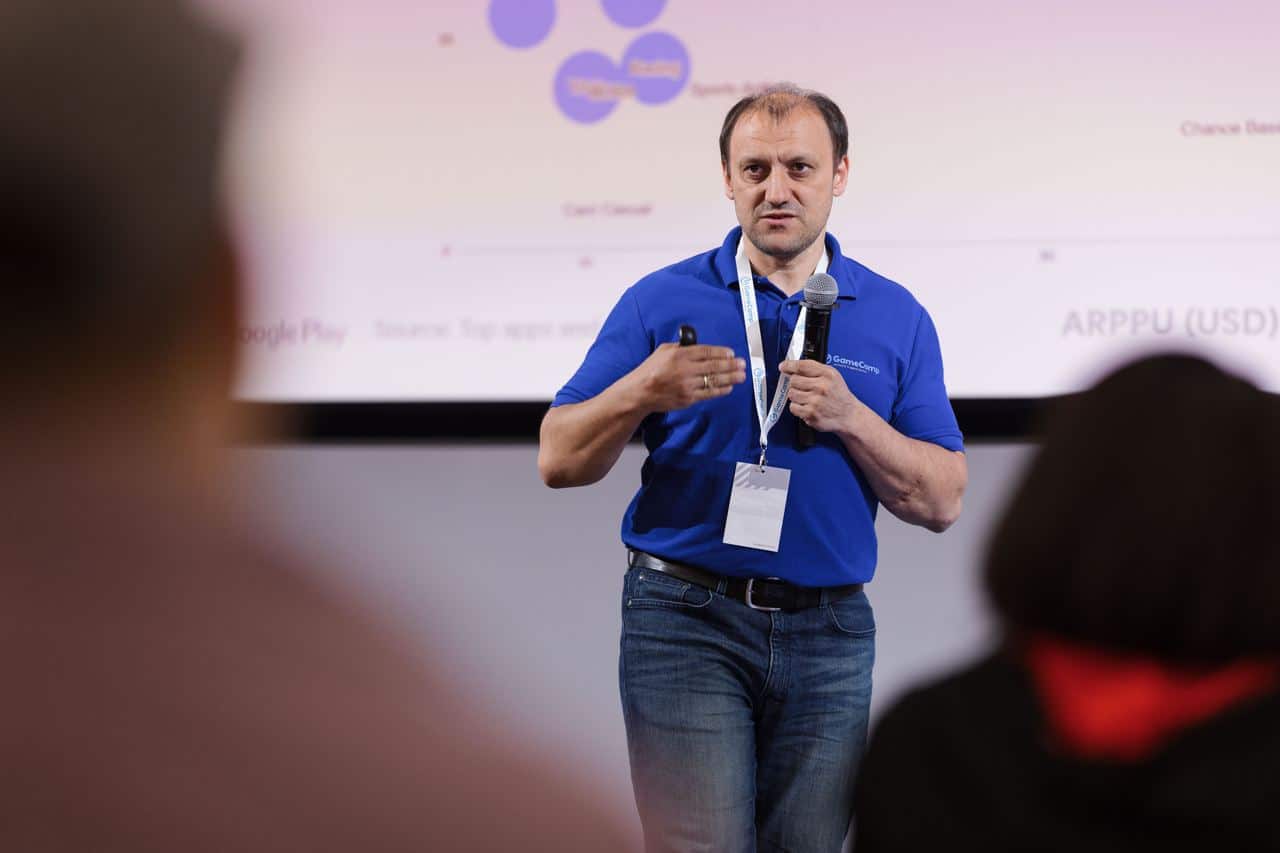
Do you think the gaming industry will continue to grow in the coming years?
Even if you look at the data, the last months were much better than older months. For mobile gaming the years like 2021-2020 cut the situation when the industry was growing like 25 percent year over year which was unnatural a little bit. What is actually quite interesting. If you compare it with like 12 months before the COVID and with 12 months after, you’ll see that the average is almost the same size. And now the average would be around between 8 to 10 percent year of the year. Excluding China, now we see small positive growth YoY in revenue while 12 months ago average YoY was around -11 per cent. I will talk in detail about data and trends in mobile gaming during the Linq presentation this year.
Also because natural growth went away, I think, there is more and more searching the industry for additional business models as well. More and more companies are experimenting with different ways to increase monetisation (i.e adding ads to games, adding IAPs to primarily ads-driven games, experiments with subscriptions, cooperation with traditional brands). Of course, it’s just the beginning, but I think that more and more of that will be coming. The second way to grow is the cross-platform connection. More and more users prefer to use different devices, both mobile and desktop. So, we will have more and more ideas on how to actually cross promote our products.
If we talk about specific areas of development, the issue of privacy can be highlighted as the top priority. Companies use quite a lot of data from the users and use it to measure results, personalize some gaming experience but users expect more privacy at the same time. Safe and provide privacy first technologies will come to the forefront. The second theme is no-growth. Companies use sophisticated methods of development, for instance, for monetization or advertising. AI and machine learning are used here more and more heavily.. And the last one. More and more growth will be coming from emerging markets. Not only from already conscious countries like Germany but also from Brazil, Indonesia, Africa. It will bring challenges for the developers on how to understand users, how to localize those assets, and not just localize but culturalized the content and games. Which means that there will be more and more need for diversity inside the company to see the different views coming from the people. And those companies that understand the importance of diversity and cross-interaction between different departments will win in the long run.
Now it’s particularly curious to know what life hacks you have to track such industry changes? Can you share a few pieces of advice?
It depends on how much cost you are ready to pay for the information and what income you expect. There are a lot of good newsletters on industrial significance, events and conferences by other companies. For example, we have quite different events in GameCamp by Google. You can just dive in and get knowledge. Also you can get insights from local communities in LinkedIn, Facebook, Telegram. And it depends on how you define yourself, what information you want to get or share. Speaking of specific tools, of course, I use reports from Google, Statista, Marketer, and so on. However, it’s essential to always approach information personally. For instance, why would I need to know how many people speak English worldwide? In reality, this is quite crucial information as it helps understand how to localize a product in a specific market.
What is serving the community for you?
I don’t want to appear like Mother Teresa, claiming that I solely serve the community. No, for me, it’s a combination of three goals: personal, company, and others’ well-being. It is in balancing these three aspects that community growth lies. In the rapidly evolving gaming apps industry, it’s the only way to do things. You can either possess knowledge and keep it within yourself and your company, or you can, for example, participate in conferences, share and enhance your personal brand, your company’s brand, and grow together with others. The more you create for the community, the more you receive in return as an employee, as a founder, as any person in the industry.

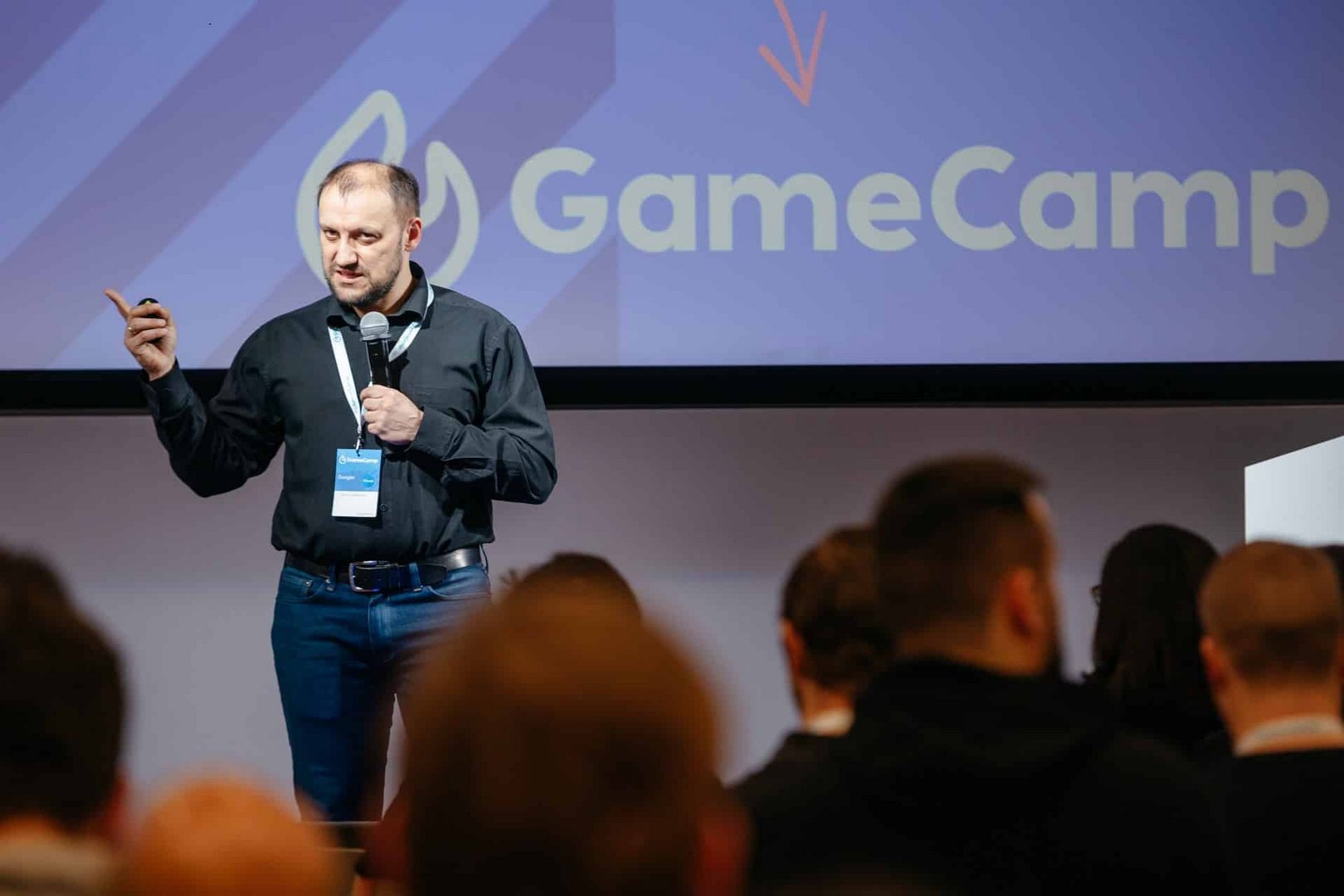





Click here to change your cookie preferences